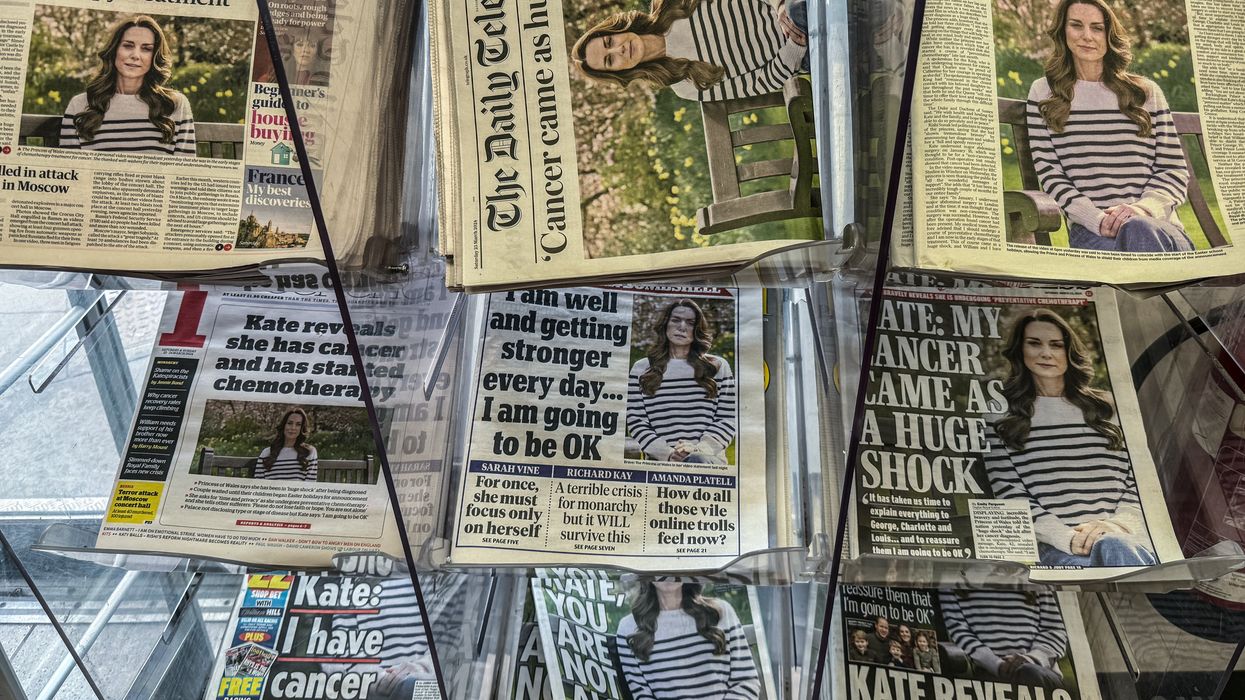Lockard is an Iowa resident who regularly contributes to regional newspapers and periodicals. She is working on the second of a four-book fictional series based on Jane Austen’s “Pride and Prejudice."
“Great minds discuss ideas; average minds discuss events; small minds discuss people.” – Eleanor Roosevelt
Have we become a society of small minds?
In 1974, Time magazine rolled out a new publication, People, to capitalize on its wildly popular section. Fifty years later, we need not wait for a weekly publication.
Privacy, a concept once treasured, is being ceded to the pirates with a fight.
After Jacqueline Kennedy Onassis, the widow of our 35th president, had been widowed a second time, the paparazzi hounded her. They argued that because she had married a former president and then a wealthy shipping magistrate, she was fair game. She had given up her right to privacy.
Privacy is not mentioned in our Bill of Rights, but perhaps it should be. It is implied in the Declaration of Independence’s promise of “life, liberty and the pursuit of happiness,” as depriving citizens of their privacy violates every aspect of life and limits their personal liberty. Plus, happiness is difficult to pursue when you are being pursued by paparazzi.
Should Jackie have had to spend her entire life pleasing all of the people all of the time? Did the public have a right to know her every move, even to vilify her for wanting privacy? Apparently, the answer was “yes” to both questions. Her only choice: to hire a firm to manage her public relations. She was considered American royalty.
The stakes have only gotten higher, the privacy invasion only more insidious.
Years later, a “real” royal, Princess Diana, discovered this. And paid dearly.
And since her hospitalization in January, Kate Middleton, now princess of Wales, has become the object of intense media speculation. Was her husband, Prince William, having an affair? Was she? Were they on the verge of divorce? And why was the princess not playing to her public, catering to the enquiring minds who want to know, as The National Enquirer used to say.
Turns out the answer to all the speculation was: none of the above. The princess is battling cancer.
For shame.
Yet, the blood-thirsty media can’t be entirely blamed for procuring fresh meat to feed our insatiable appetites. Besides, don’t we have a right to know?
Do we? Did we have the right to force a devoted mother suffering with a horrendous disease to disclose her struggle publicly?
Others’ “stories” may be interesting, but their personal lives are just that – personal. Why do we so want to infiltrate them? As fodder for our otherwise mundane lives? And why are we satisfied being preoccupied with other’s lives, while, in the words of T.S. Eliot, measuring out our own in “coffee spoons?”
Garnering adulation for being in the know, especially for the first to know, our hunger for salacious gossip is seemingly unquenchable and only grows more so in our increasingly connected world. In our obsession with celebrity status, so much time is consumed by others’ lives and curating our own. Influencers and those famous for being famous, with no other talent than the ability to draw attention to themselves, are admirable, emulated. And how willingly we disclose our own honed versions of ourselves, hoping our “followers” or resulting “likes” will capitulate us to our 15 minutes of fame, as promised by Andy Warhol.
But what is the difference between the outrage we feel at our phones being tapped, or cameras in private places, and the invasion of an individual’s privacy?
And where is “oneself,” when always playing to the public or pleasing others? Appeasing and pleasing are constraints which leave no possibility of remaining true to oneself.
Despite this, Oscar Wilde’s adage has seemingly been taken to heart: “The only thing worse than being talked about is not being talked about.” Privacy has become an archaic idea in this tell-all age. The pirates have taken over the ship.
What if we concentrated on fully living our own lives, ignoring both critics and followers, and engaging in worthwhile, real pursuits? Instead of indulging our endless fascination with others’ lives and showcasing our own, would it not be a thousand-fold more enthralling for us to keep our treasures and sail bravely forth?
Then, think of Mary Oliver “and tell me, what is it you plan to do with your one wild and precious life?”




















